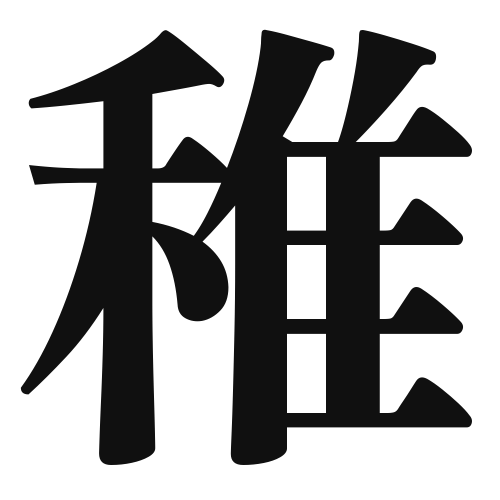1. Overview of Meaning
The kanji “稚” (pronounced “chi” or “waki”) means “young” or “immature.” It is often used to describe something that is in its early stages of development or growth.
2. Formation and Radical
Formation of the Kanji: The kanji “稚” is a phonetic-ideographic character (形声文字). It combines the radical for “rice” (禾) with a phonetic component that suggests its pronunciation.
Radical: The radical of “稚” is “禾,” which relates to plants and agriculture, emphasizing the connection to growth and youth.
3. Examples of Usage
Common Words and Phrases:
- 稚拙 (ちせつ, chisetsu) – clumsy or immature
- 稚魚 (ちぎょ, chigyo) – young fish or fry
Example Sentences in Daily Conversation:
- 彼はまだ稚い考えを持っています。 (かれはまだちいなかんがえをもっています。) – He still has immature thoughts.
- この稚魚は成長するのが楽しみです。 (このちぎょはせいちょうするのがたのしみです。) – I look forward to seeing this young fish grow.
4. Synonyms and Antonyms
Similar Kanji:
- 幼 (よう, you) – meaning “infant” or “child,” which is similar but often refers to a younger age than “稚.”
Antonyms:
- 成熟 (せいじゅく, seijuku) – meaning “maturity,” which is the opposite of being young or immature.
5. Cultural and Historical Background
Connection to Japanese Culture: The concept of youth and growth is significant in Japanese culture, often symbolizing potential and future possibilities.
Proverbs and Idioms:
- 「若い時の苦労は買ってでもしろ」 (わかいときのくろうはかってでもしろ) – “Endure hardships when you are young,” emphasizing the value of experiences in youth.
